Last guided tour of the Stus Exhibition in Berlin - Instytut Pileckiego
26.08.2025 () 18:45
Last guided tour of the Stus Exhibition in Berlin
We warmly invite you to the closing evening of the exhibition dedicated to Vasyl Stus — one of Ukraine’s most prominent poets and dissident voices.
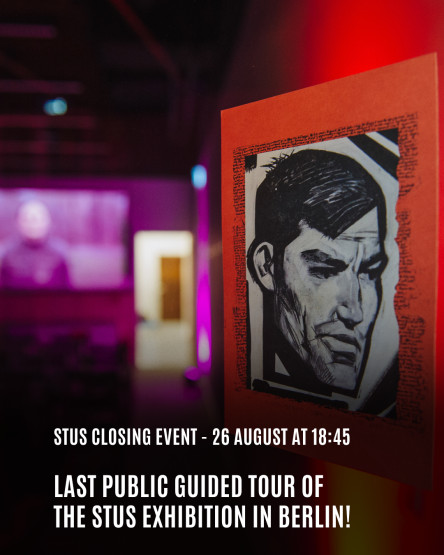
Vasyl Stus Exhibition Closing Event
![]() Tuesday, 26 August, 18:45
Tuesday, 26 August, 18:45
We warmly invite you to the closing evening of the exhibition dedicated to Vasyl Stus — one of Ukraine’s most prominent poets and dissident voices.
Finissage Program
![]() 18:45 – Curatorial tour in English: a guided journey through the exhibition with insights not only into Stus’s life, but also into Ukraine, its history, and its struggle for independence.
18:45 – Curatorial tour in English: a guided journey through the exhibition with insights not only into Stus’s life, but also into Ukraine, its history, and its struggle for independence.
![]() Following the tour – Open microphone: we invite everyone to read aloud Vasyl Stus’s poems, in Ukrainian or in translation (German, Polish, English).
Following the tour – Open microphone: we invite everyone to read aloud Vasyl Stus’s poems, in Ukrainian or in translation (German, Polish, English).
Registration: https://forms.gle/UZByMWKbZUqz6Hg2A
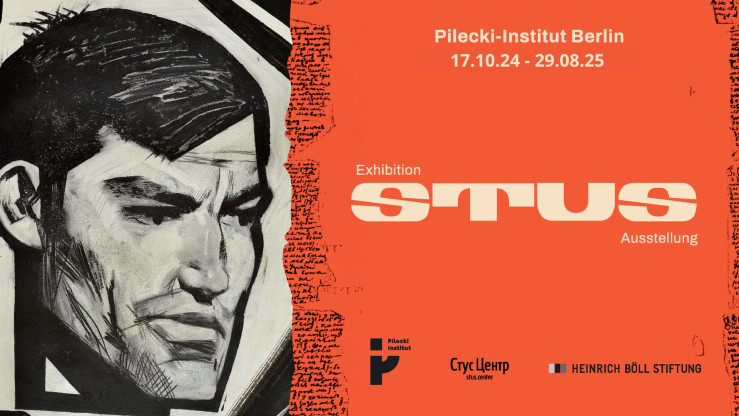
This final evening is also dedicated to Ukraine’s Independence Day, celebrated on 24 August. Today, Stus is remembered in Ukraine as a human whose words continue to inspire resistance, dignity, and freedom.
Join us to commemorate Vasyl Stus and to celebrate the enduring power of poetry and independence.
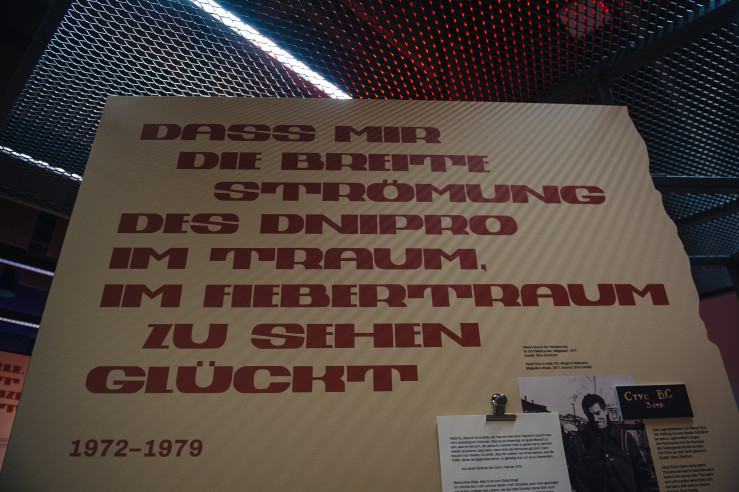
Stus might have first fallen in love with the rhythms and flows of the Ukrainian language when his mother sang him Ukrainian folk songs. In conjunction with his dissident freedom-loving instinct, this love would define his life. Already in the 1960s, he decided to teach the Ukrainian language, defying widespread Soviet top-down russification policies. No wonder then that this love also had him pay a huge price: throughout the history of the USSR, he was repeatedly arrested, his works and Ukrainian translations of German poetry forbidden, his activism in defense of the Ukrainian intelligentsia suppressed.
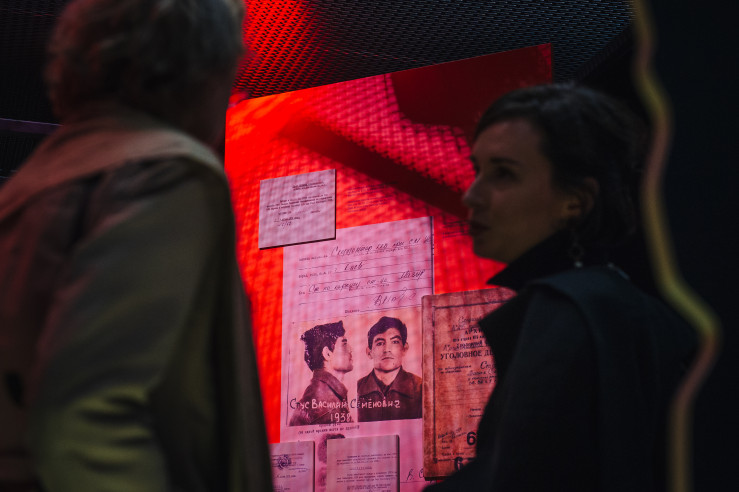
Born amidst the horrors of World War II, Stus survived the Nazi occupation and the hunger of the postwar years, yet hunger would haunt him until his very last day: he died during a dry hunger strike. His story is that of an undeservedly unknown European freedom fighter and of a nation struggling for its right to breathe and exist.
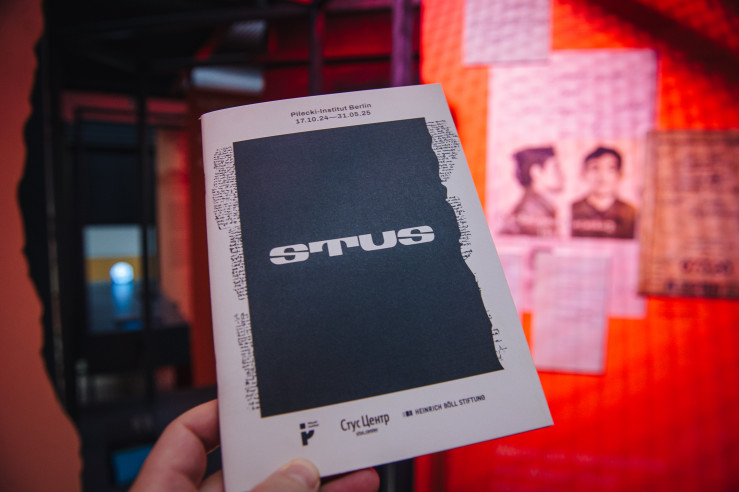
Indeed, Stus’s struggle was a reaction to the centuries-long Russian insistence that Ukrainianness was not to be accepted as an independent identity. The exhibition therefore tells not only Stus’s story, but also that of the underappreciated Ukrainian anti-Soviet dissident movement, which still remains on the peripheries of Europe’s collective memory.
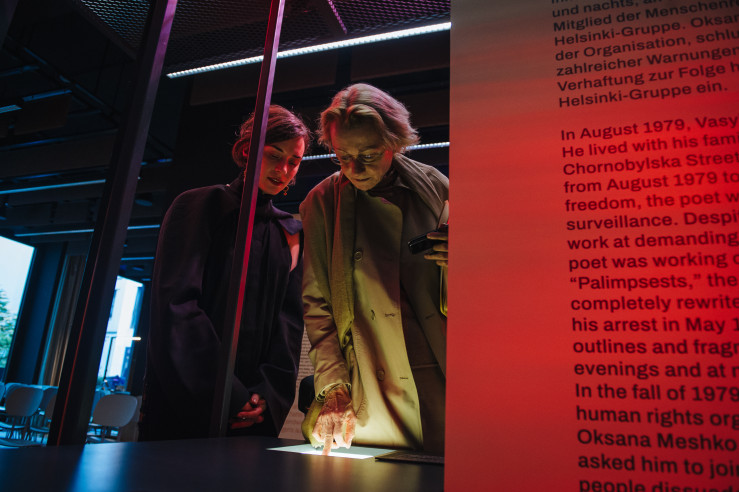
These days, Ukrainian poets once again have to fight for their nation’s survival—although this time, they dropped their pens, picked up weapons, and joined the Ukrainian army. Some of them are shown in the exhibition, reading Stus’s poetry.
The exhibition also reflects on the philosophical nature of Stus’s activism: Was he a fairytale-like hero, or a real human being with a moral compass strong enough to defend freedom in the face of evil?
In his afterlife, Stus’s admiration for German and Polish culture, writers, and anticommunist resistance movements has inspired new cooperation between Polish, German, and Ukrainian organizations—an alliance so urgently needed in today’s Europe.
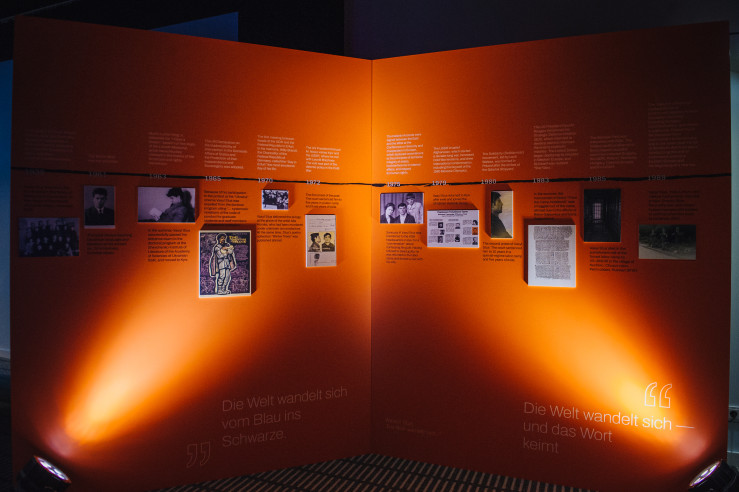
Photos: (C) Grzegorz Karkoszka